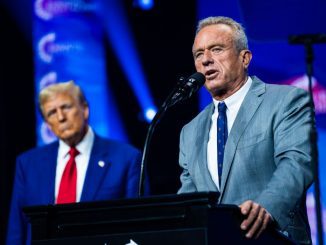
WASHINGTON — Chief U.S. District Judge James E. Boasberg has shattered legal norms by initiating a criminal contempt investigation into Trump administration officials for defying his order to halt deportations of Venezuelan migrants. The bold move, announced on April 16, 2025, follows the administration’s removal of 130 Venezuelans to El Salvador’s notorious mega-prison, ignoring Boasberg’s March 15 temporary restraining order (TRO).
The TRO, issued in response to a lawsuit by detained Venezuelans, barred deportations under the Alien Enemies Act of 1798, citing due process violations. Yet, hours after the ruling, the Department of Justice (DOJ) proceeded with flights, sending the migrants to the Terrorism Confinement Center (Cecot), known for torture and overcrowding, under a $6 million U.S.-El Salvador deal. Boasberg had ordered any airborne planes to return—a directive blatantly disregarded. In his ruling, the judge found “probable cause” of “willful disregard,” warning that such defiance makes a “solemn mockery” of the Constitution.
During a hearing, Boasberg grilled Deputy Assistant Attorney General Drew Ensign, also linked to the Kilmar Armando Abrego Garcia case, about who ordered the flights to continue. Ensign’s admission of ignorance led the judge to accuse the DOJ of “bad faith,” rejecting the administration’s claim that the order lost force once planes left U.S. airspace. The administration has also withheld flight details, further stoking judicial ire.
To avoid contempt, Boasberg urged the administration to reassert custody of the deportees, allowing habeas corpus challenges. If they refuse, he plans to identify culpable officials, demand explanations, and potentially appoint an independent prosecutor—a rare escalation. The judge’s stance echoes concerns over the administration’s broader defiance, including the Abrego Garcia case, where it ignores a Supreme Court order to return a wrongfully deported Maryland man.
Critics, including legal scholars, see this as a constitutional crisis, with the administration using wartime laws to bypass courts and partnering with El Salvador’s authoritarian leader Nayib Bukele. On X, reactions range from alarm—“This is a dictator’s playbook”—to defenses citing national security against alleged gang members, though evidence is thin. The outcome could set a precedent for holding executive officials accountable, a critical test as Trump pushes mass deportations.
For now, Boasberg’s probe signals a judiciary ready to fight back against what he calls a “willful disobedience” threatening the rule of law.


